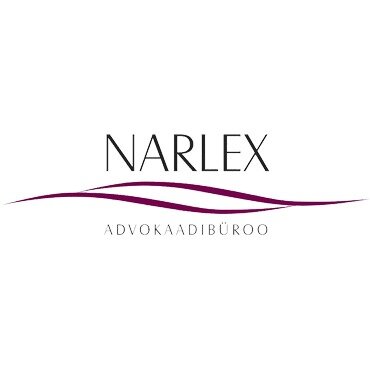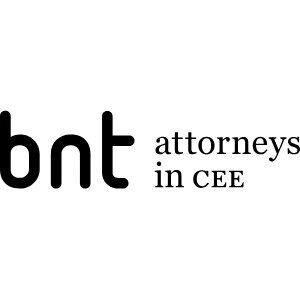Best International Trade Law Lawyers in Estonia
Share your needs with us, get contacted by law firms.
Free. Takes 2 min.
Or refine your search by selecting a city:
List of the best lawyers in Estonia
About International Trade Law in Estonia
International Trade Law in Estonia is a complex field that governs the way businesses engage in cross-border trade activities. As a member of the European Union, Estonia follows EU trade regulations and policies, which aim to ensure free trade within the single market while managing trade relationships with non-EU countries. Estonian trade law is also influenced by international agreements such as those established by the World Trade Organization (WTO). Understanding the harmonization between local law and international rules is crucial for businesses operating in or with Estonia.
Why You May Need a Lawyer
Engaging in international trade entails complex transactions and regulatory requirements. You may need a lawyer if you are:
- Negotiating a cross-border trade agreement and need assurance of compliance with applicable laws.
- Facing disputes related to unfair trade practices, such as dumping or import restrictions.
- Seeking guidance on trade sanctions affecting your business activities in Estonia or abroad.
- Requiring assistance with customs duties, tariffs, or any issues related to import/export control.
- Planning to expand your business operations internationally and need legal insight on applicable trade regulations.
Local Laws Overview
Key aspects of local laws relevant to International Trade Law in Estonia include:
- EU Trade Regulations: Estonia complies with EU regulations which seek to promote free trade while maintaining safeguards against unfair practices.
- Customs Code: The country adheres to a unified customs code that regulates the handling of goods at borders, ensuring compliance with EU customs laws.
- Foreign Trade Policies: Estonia has specific policies in place regarding the trade of strategic goods, export controls, and licenses.
- Dispute Resolution: The Estonian legal system offers mechanisms for resolving international trade disputes, including through arbitration and mediation.
Frequently Asked Questions
What are the main challenges in international trade with Estonia?
Challenges can include navigating the complex regulatory environment, understanding EU trade policies, and managing customs requirements.
Do I need a local partner to trade with Estonia?
No, a local partner is not a legal requirement, but partnering with a local can facilitate market entry and help navigate regulatory issues.
What role does the EU play in Estonia's trade regulations?
As a member of the EU, Estonia's trade regulations are largely shaped by EU policies aimed at promoting fair competition and removing market barriers.
How do customs duties apply in Estonia?
Customs duties apply to goods from outside the EU, in accordance with the EU Common Customs Tariff. Duties may vary based on product type.
What is the process for resolving trade disputes in Estonia?
Dispute resolution can be pursued through the Estonian court system or through arbitration and mediation, depending on the agreement terms.
Does Estonia have any specific laws regarding digital trade?
Estonia supports a digital economy and abides by EU legislation on digital goods and services, ensuring privacy and consumer protection.
What are the regulations for import/export of strategic goods?
Estonia has specific licensing requirements and controls in place for strategic goods to ensure national security and compliance with international standards.
How does Estonia handle trade sanctions?
Trade sanctions in Estonia are regulated in accordance with EU and international sanctions, impacting trade with certain countries and sectors.
Are there any trade incentives for foreign businesses in Estonia?
Estonia offers an attractive business environment with low corporate taxes and simplified regulations, encouraging foreign investment and trade.
What documentation is required for international trade in Estonia?
Required documents may include commercial invoices, bills of lading, certificates of origin, and any necessary permits or licenses.
Additional Resources
For further assistance or information related to International Trade Law in Estonia, consider reaching out to:
- Estonian Chamber of Commerce and Industry: Provides resources and support for businesses engaged in international trade.
- Estonian Ministry of Foreign Affairs: Offers information on trade policies, sanctions, and export control.
- EU Commission on Trade: Supplies guidelines and updates on EU trade laws applicable to Estonia.
- World Trade Organization (WTO): Offers a global perspective on trade practices that affect Estonia.
Next Steps
If you require legal assistance in International Trade Law in Estonia, consider taking the following steps:
- Contact an attorney specializing in trade law to discuss your specific needs and challenges.
- Evaluate your current trade practices to identify areas where legal compliance may be necessary.
- Reach out to relevant trade organizations for support and guidance specific to Estonia.
- Ensure that you stay informed about changes in regulations that may impact your trade activities.
Lawzana helps you find the best lawyers and law firms in Estonia through a curated and pre-screened list of qualified legal professionals. Our platform offers rankings and detailed profiles of attorneys and law firms, allowing you to compare based on practice areas, including International Trade Law, experience, and client feedback.
Each profile includes a description of the firm's areas of practice, client reviews, team members and partners, year of establishment, spoken languages, office locations, contact information, social media presence, and any published articles or resources. Most firms on our platform speak English and are experienced in both local and international legal matters.
Get a quote from top-rated law firms in Estonia — quickly, securely, and without unnecessary hassle.
Disclaimer:
The information provided on this page is for general informational purposes only and does not constitute legal advice. While we strive to ensure the accuracy and relevance of the content, legal information may change over time, and interpretations of the law can vary. You should always consult with a qualified legal professional for advice specific to your situation.
We disclaim all liability for actions taken or not taken based on the content of this page. If you believe any information is incorrect or outdated, please contact us, and we will review and update it where appropriate.
Browse international trade law law firms by city in Estonia
Refine your search by selecting a city.















